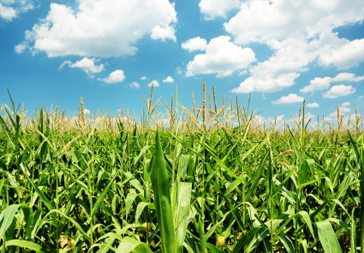
Tamilnadu - Farmers Farmers
The main vegetables grown are tapioca, tomato, onion, brinjal and drumstick. Tamil Nadu is also a leading state in the production of flowers with the total production of horticultural crops standing at 99.47 Lakhs during 2003-04. The main flowers grown in Tamil Nadu are Jasmine, Mullai, Chrysanthemum, Marigold and Rose. The state is the largest producer of bananas, flowers, tapioca, the second largest producer of mango, natural rubber, coconut. groundnut and the third largest producer of coffee, sapota, Tea[ and Sugarcane. Tamil Nadu is also a leading producer of spices, kambu, corn, rye and oil seeds. The main spices grown are chillies, coriander, tamarind, turmeric and curry leaves. Tamil Nadu's sugarcane yield per hectare is the highest in India.. A host of sugar companies have their operations here including EID Parry I Ltd., Thiru Arooran Sugars Ltd., Sakthi Sugars Ltd., Bannari Amman Sugars Ltd. and Rajshree sugars Ltd. The state has 17,000 hectares of land under oil palm cultivation, the second highest in India. Currently, Tamil Nadu is the only state to have a formal bio-diesel policy using jatropha plant crops and to distribute wasteland to the poor farmers for planting. Tamil Nadu is the home to Dr M.S. Swaminathan, known as the "father of the Green Revolution" in India. Tamil Nadu Agricultural University with its seven colleges and thirty two research stations spread over the entire state contributes to evolving new crop varieties and technologies and disseminating through various extension agencies. The net sown area is 36% of the total geographic area The gross cropped area is 53,200 km2 with a cropping intensity of 119. Irrigation covers 46% of the cropped area and the remaining 54% is rain-fed. Tamil Nadu's agriculture is heavily dependent on river water and monsoon rains. The perennial rivers are Palar, Cheyyar River, Ponnaiyar, Kaveri, Meyar, Bhavani, Amaravati, Vaigai, Chittar River & Tamaraparani. Non-perennial rivers include the Vellar, Noyal, Suruli, Gundar, Vaipar, Valparai and Varshali. Canals, tanks and wells form the sources of Irrigation for farmers in the state. As of 2005-2006, the state had 2395 canals with a length of 9,747 km (6,057 mi), 40,319 tanks, 670 ordinary government wells, 1,620,705 ordinary private wells and 290,611 tube wells. Irrigated Agriculture Modernization and Water-bodies Restoration and Management project is a World Bank aided project being implemented in Tamil Nadu at a cost of INR 2500 crores. Duration of the project April 1 2007 to March 31 2013. The main aim of the project is to restore the existing 40319 tanks to save water to their full capacity as it was created by ancient forefathers of Tamil Nadu some 2000 years before.
|
|
